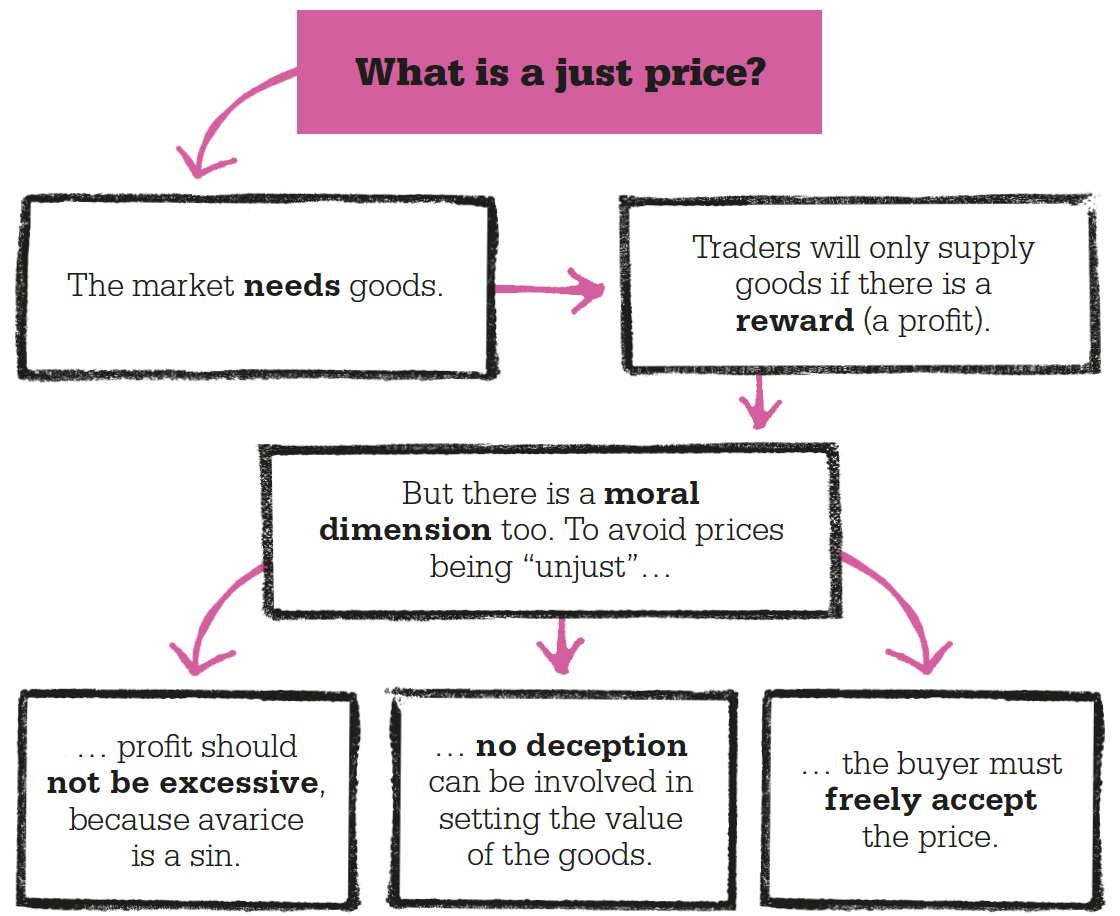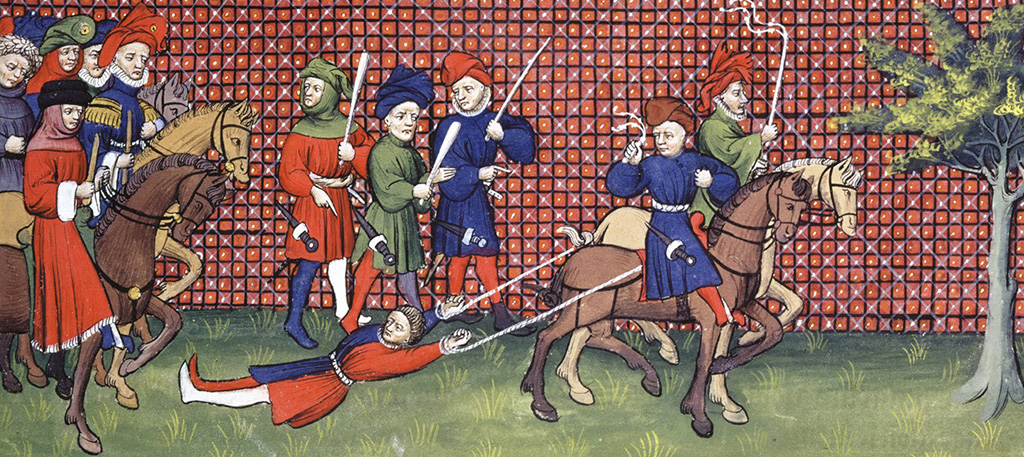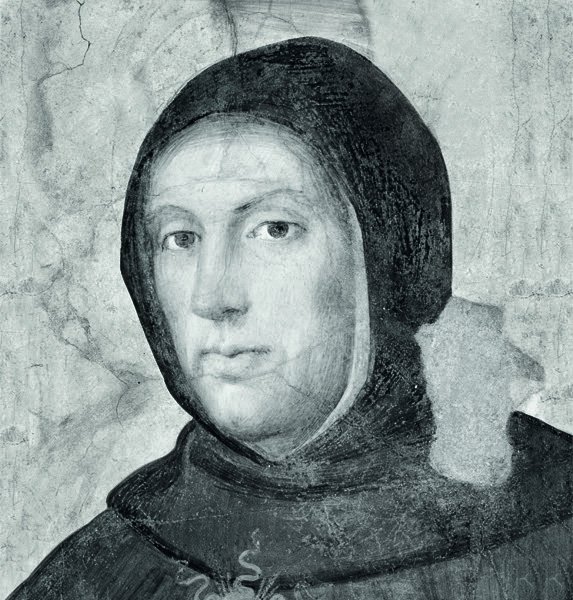

Society and the economy
Thomas Aquinas (1225–74)
c.350 BCE In Politics, Aristotle says that all goods must be measured in value by one thing—“need.”
529–534 CE Roman courts protect landowners from being forced to sell land below the just price, at “great loss.”
1544 The Spanish economist Luis Saravia de la Calle argues that price must be set by “common estimation” founded on quality and abundance.
1890 Alfred Marshall proposes that prices are automatically set by supply and demand.
1920 Ludwig von Mises argues that socialism cannot work because prices are the only way to establish need.
Many people know what it is like to be exploited or “ripped off” by a vendor, such as when buying overpriced ice-creams at a tourist venue. Yet according to prevailing economic theory, there is no such thing as a rip-off. The price of anything is simply the market price—the price people are prepared to pay. For market economists there is no moral dimension to price at all—pricing is simply an automatic function of supply and demand. Merchants who appear to be overcharging are simply pushing the price to its limits. If they push their price further than people are prepared to pay, people stop buying, so the merchants are forced to bring down their prices. Market economists consider the marketplace to be the only way to establish price, as nothing—not even gold—has an intrinsic value.

The idea that the marketplace should set prices seems to contrast sharply with the view expressed by Sicilian scholar Thomas Aquinas in his Summa Theologica, one of the first studies of the marketplace. For Aquinas, a scholar monk, price was a deeply moral issue. Aquinas recognized avarice as a deadly sin, but at the same time he saw that if a merchant is deprived of the profit incentive, he would cease to trade, and the community would be deprived of goods it needed.
Aquinas concluded that a merchant may charge a “just price,” which includes a decent profit, but excludes excessive profiteering, which is sinful. This just price is simply the price the buyer freely agrees to pay, given honest information. The vendor is not obliged to make the buyer aware of facts that might lower the price in the future, such as the shiploads of cheap spice due to dock shortly.
"No man should sell a thing to another man for more than its worth."
Thomas Aquinas
The issues of price and morality are very much alive today, since both economists and the public discuss “the just price” of a CEO’s bonus or the minimum wage. Free market economists, who reject interference in the market, and those who advocate government intervention—whether for moral or economic reasons—continue to argue about the rights and wrongs of imposing restrictions on pricing.

Medieval communities felt strongly about the prices merchants charged. In 1321, William le Bole of London was punished for selling underweight bread by being dragged through the streets.

St. Thomas Aquinas was one of the greatest scholars of the Middle Ages. He was born in Aquino, Sicily, in 1225, to an aristocratic family, and began his education at the age of five. At the age of 17 he decided to leave worldly wealth behind and join an order of poor Dominican monks. His family was so shocked that they kidnapped him on his way to join the order and held him captive for two years. His determination, however, remained unbroken, and eventually the family gave in, letting him go to Paris, where he came under the tutelage of the scholar monk Albert the Great (1206–80). Aquinas studied and taught in France and Italy, and in 1272, founded a studium generale (a type of university) in Naples, Italy. His many philosophical works were hugely influential in paving the way to the modern world.
1256–59 Disputed Questions on Truth
1261–63 Summa contra Gentiles
1265–73 Summa Theologica
See also: Property rights • Free market economics • Supply and demand • Economics and tradition